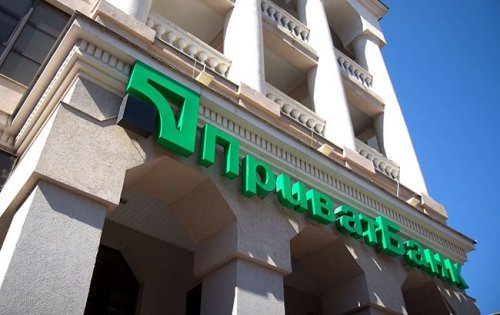
Nils Melngailis
The appointment on March 23 of such a character as Nils Melngailis as the head of the supervisory board of the largest commercial bank in Ukraine is, of course, a mini-scandal. It is enough just to list the list of problems that the Estonian Internet bank Luminor is experiencing, the Supervisory Board of which he also has the honor to head, writes Ukrrudprom.
So, in the fall of 2017, the Finnish Nordea and the Norwegian DNB Bank merged their Baltic banks under the guise of Luminor. A year later, these two Scandinavian banks sold a majority stake in Luminor to the American investment fund Blackstone, which is the largest company in the field of alternative investments, in particular, has the largest real estate portfolio in the world.
The new owner conducted two internal investigations and found out that at least more than 4 billion euros of dubious origin passed through what is now called Luminor, and most of these funds are connected with the Russian Federation. So, for example, companies owned by a former officer of the Russian army spent 947 million euros through bank accounts over 9 years. Moreover, more than 30 million euros of this amount were transferred to the accounts of one-day companies.
However, the fact that Luminor was actually built on dirty Russian money and the leadership of the Baltic bank is up to its neck in these schemes is only a piece of the overall puzzle. Another is related to the fact that Luminor is not able to carry out its current activities normally. At the beginning of March, the Estonian Financial Supervision Authority and the Estonian Consumer Protection and Technical Supervision Authority announced that they had been conducting a supervisory review of Luminor since 2022, as its customers have been complaining about serious internet banking failures for more than two years.
Despite the fact that Luminor services do not work normally, he was going to raise a number of service tariffs from April 1.
The Central Bank of Lithuania, where an Estonian bank also operates, had to work hard to persuade Luminor not to create another fat reason for complaints from consumers of its services.
Obviously, with an eye to all the problems listed, the appointment of the head of the Supervisory Board of Luminor as the head of the Supervisory Board of Privatbank looks very deviant. The Ukrainian bank also has jambs, however, they are not as critical and systemic as those of the Baltic colleagues. It’s like appointing a high school repeater from one school as the director of a neighboring one.
Of course, you don’t expect strong personnel decisions from the OP lately, but even against their background, Nils Melngailis is too much. However, all these reproaches are true, if only we do not take into account the figure of the owner of the “big top” called Luminor. It is possible that the appointment of Melngailis is nothing more than an element of Privat’s pre-sale preparation.
You may ask: why is Blackstone even the largest bank, but warring Ukraine? The answer may be contained in a report published in 2019 by a UN special committee, where the Blackstone Group was named one of the main culprits of the global housing crisis, which sharply inflated prices and rental rates in this segment of real estate in dozens of countries around the world: from the USA to the Czech Republic.
Obviously, Ukraine is facing a rather long period of obscenely low prices for residential real estate, which then (as the security situation normalizes) will very sharply return to pre-war levels. Blackstone sees a good opportunity to make money here.
And Privatbank, as the largest player in the field of mortgages, is an excellent master key to the Ukrainian residential real estate market that has drastically sagged in value. After all, any war is a great opportunity for scavengers. And Blackstone just wants to be in time for the start of the meal.







